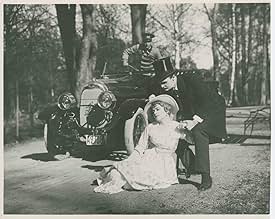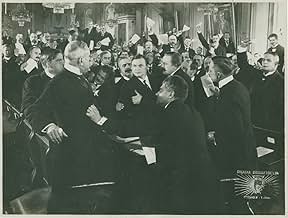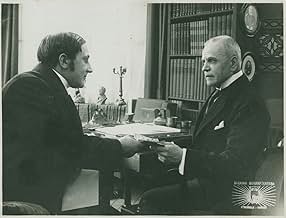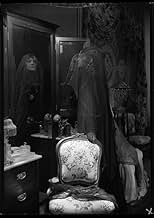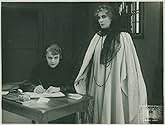Madame de Thebes was found in France a couple of years ago, and was after some hassle returned to Sweden where it was restored. This is the oldest Mauritz Stiller film now in existence.
The story is wacky - a gypsy is cursed by her father, so that she has to deny her illegitimate son in order for him to have a successful life. She gives him to a well-to-do lady who has lost her own child.
Later, he has grown up to be a politician who wants to become the foreign minister. He doesn't know that his real mother is the famous Madame de Thebes, the fortuneteller who all politicians make sure to visit! This information falls into the hands of a rival, who tries to use it to ruin his career. Meanwhile, the rival's attractive daughter is attacked by a ruffian and needs to be rescued...
It's interesting to see how gypsies are depicted in this film. They aren't presented as evil, but it's taken for granted that they can do magic, and there is apparently a great social stigma attached to anyone who is associated with them - the rival can ruin the hero's entire political career simply by revealing that his mother is a gypsy, for instance.
The concept of a political fortuneteller seemed odd to me at first, but the character Madame de Thebes was apparently based on a real person.
There are a lot of striking images in this film. You can see the beauty of them even if the state of the print is far from perfect. The Norwegian actress Ragna Wettergreen gives a haunting performance as Madame de Thebes, with wisdom and regret - and quite a few melodramatic gestures. Understatement was not the norm in those days.
All the original tints have been restored, and the music at the showing I attended was beautiful and very fitting. The composer, Matti Bye, ought to make sure his music scores make it to future DVD releases of Swedish silent films.


